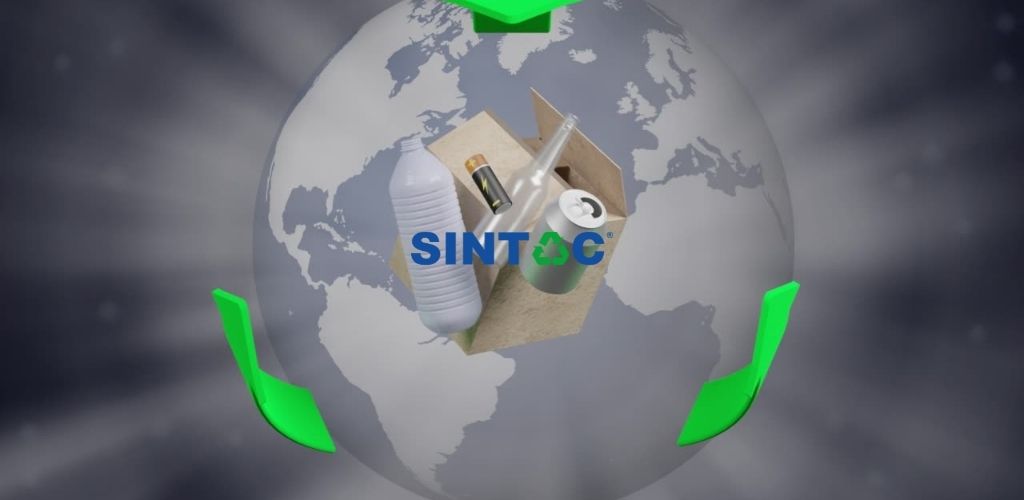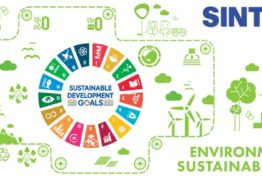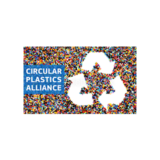17 May World Recycling Day
Every year, the inhabitants of planet Earth produce 2.1 billion tonnes of solid waste. Sixteen per cent of this is recycled, which prevents 700 million tonnes of CO2 from entering the atmosphere.
Unfortunately, 46% of this waste, enough to fill 368,000 Olympic swimming pools, is disposed of unsustainably, i.e. landfilled, incinerated and illegally dumped into the environment.
It is clear that a 16% recycling rate is not enough. We need education, legislation and action to combat this growing environmental and humanitarian crisis. And World Recycling Day, held annually on 18 March, is a launch pad for businesses and individuals who want to make a difference.

What is World Recycling Day 2022?
World Recycling Day is celebrated every year on 18 March to recognise the importance of recycling as a resource, not as waste. The day aims to urge world leaders to make recycling a global issue and encourage people to think resourceful rather than wasteful when it comes to the goods around us.
It was created in 2018 to help recognise, and celebrate, the importance of recycling in preserving our precious primary resources and securing the future of our planet. It is a Day for the world to come together, and put the planet first.
Every year, the Earth produces billions of tonnes of natural resources and at some point in the not too distant future, they will run out.
So we must rethink what we throw away: see not waste, but opportunity.
The last decade has been the hottest in history, and we now face a climate emergency of unprecedented proportions. If we do not make significant and rapid changes, we will see a continued rise in global temperatures, melting ice caps, burning continents and rapid deforestation.
This directly affects humanity through increased poverty, migration of displaced communities, loss of jobs, mountains of waste and disappearing natural habitats. We have the power to make lasting changes to combat this, and with the recognition of recycling in the UN’s 2030 Sustainable Development Goals, we are already seeing many individuals, governments and organisations taking direct action to support the global green agenda.
Recycling is a key part of the circular economy, helping to protect our natural resources. Every year, the “Seventh Resource” (recyclable materials) saves more than 700 million tonnes of CO2 emissions and this figure is expected to rise to one billion tonnes by 2030. There is no doubt that recycling is at the forefront of the war to save the future of our planet and humanity.
What day is World Recycling Day?
Every 17 May, World Recycling Day is celebrated internationally with the aim of raising awareness of the importance of this process that treats waste, generates new jobs and, above all, seeks to protect the environment and curb climate change. The celebration began informally in 1994, but in 2005 the United Nations Educational, Scientific and Cultural Organisation (UNESCO) proclaimed 17 May as World Recycling Day. Since then, different environmental organisations have come together annually to hold events to raise awareness among the civil and international community about the need for this process.
It also seeks to recognise the importance and dignity of the people who work in it, i.e. waste pickers.
Why do we celebrate recycling day?
It was decided to celebrate the International Recycling Day because the need for all of us to participate in this process is nowadays imperative, as doing it together is the only way to stop the accelerated deterioration that the planet is suffering.
This day is celebrated with the idea of reducing pollution and giving more useful life to the materials we use, in addition to the fact that in this way we can participate in the reduction of various social and economic problems.
Thus, through the messages and activities that are carried out on this day, to raise public awareness of environmental problems and the participation of the 3Rs of ecology in the solution of these problems, with emphasis on being more active in recycling, UNESCO, and in general already many countries around the world, intend that we manage to give more life to the Earth by curbing the abuse we have of it in our current way of life. Only in this way can we continue to enjoy this planet and the generations to come have a future.

Consequences of not recycling:
Neglecting the recycling system and simply throwing away industrial waste has several environmental consequences:
Pollution: Pollution affects the environment in several ways. For example, when certain wastes, such as Styrofoam, end up in a landfill, harmful chemicals leach into the soil, which can lead to the formation of cancer cells in the soil. Failure to recycle plastic water bottles can pollute large bodies of water such as lakes, oceans and rivers.
Overflowing landfills: We all know that landfills are designed as a designated place to deposit waste. But it is no secret that as people continue to neglect recycling, our landfills will continually pile up, creating that unmistakable foul smell we have all encountered and depositing harmful chemicals into the atmosphere.
Destruction of natural habitat: As landfills accumulate, the earth cannot keep up with the amount of hazardous waste, resulting in the destruction of natural habitats.
Advantages of recycling:
- Recycling minimises pollution:
All forms of pollution in the modern world come from industrial waste. Recycling this industrial waste, such as plastics, cans and chemicals, goes a long way towards reducing pollution levels, as this waste is reused instead of being thrown away.
- Protects the environment:
The great advantage of recycling waste materials is that it goes a long way in protecting mother nature in the most balanced way. While many trees are cut down every day, recycled paper made from certain trees is continuously used to reduce deforestation.
This classic example shows that other natural resources can be recycled and made useful in this way to conserve the environment.
- Recycling minimises global warming:
It is perfectly true that recycling minimises global warming and its serious impacts. During waste disposal, huge amounts of waste are burnt leading to the emission of huge greenhouse gases such as carbon dioxide, sulphur and nitrogen, which contribute to climate change and global warming.
The recycling process involves minimal combustion and waste is transformed into reusable materials with little or no harmful impact on the environment.
The entire process of transforming and manufacturing products from waste materials emits few greenhouse gases because the waste recycling industries burn few fossil fuels.
- It conserves natural resources:
If the process of recycling used and old materials did not exist, it would mean that new products would be manufactured by extracting fresh raw materials from beneath the earth through the process of mining and extraction.
Recycling is a safe way to conserve existing raw materials and protect them for future use. Taking measures to conserve natural resources such as minerals, water and wood ensures sustainable and optimal use.
- Recycling reduces the amount of waste in landfills:
Recycling old and used materials into reusable products greatly reduces the possibility of choking landfills. This is beneficial because it helps to minimise soil and water pollution.
As landfills contribute greatly to environmental degradation, less landfill and waste ensures less erosion of more fertile soil. By preventing waste from being dumped in the ocean, aquatic biodiversity is also maintained.
- Recycling ensures sustainable use of resources
Recycling ensures that existing resources are used wisely and sustainably. The recycling process alleviates the possibility of discriminatory use of raw materials when they are available in large quantities.
Today, governments have intervened to encourage recycling from lower levels, e.g. schools, small organisations and also at the global level.
This means that manufacturing industries can leave existing natural resources to be exploited by our children in the future, without affecting current production.
- Recycling contributes to the creation of jobs.
In addition to the benefits it brings to the environment, recycling opens up employment opportunities. Recycling involves the creation of many recycling plants, resulting in a long chain of collection and delivery. All these activities are carried out by humans, so this will also lead to an explosion of opportunities.

- Reduces energy consumption
A lot of energy is used to process raw materials in the course of manufacturing. Recycling plays a big role in reducing energy consumption, which is vital for large-scale production, e.g. mining and refining.
Recycling also makes the whole production process cheaper, which is a big win for manufacturers.
- Recycling helps to earn and save money.
Electronics, old water bottles and other rubbish can be sold for money. So if you sell your rubbish, you not only save the environment but also earn money in return.
If you buy recycled materials, they are cheaper and you also save money. If you reuse some of the rubbish your household produces, you will earn and save more money.
- Recycling spreads environmental awareness
Recycling is just the beginning of a revolution that will help preserve the planet for our future generations. With calls to sort waste into biodegradable, non-biodegradable and recyclable, people are becoming more aware of recycling while reducing their environmental impact.
When everyone gets into the habit of recycling, people will become more environmentally aware and participate in more green activities.
- Recycling can reduce the allied activities necessary for the production of fresh produce.
Industries are the largest producers of greenhouse gases and pollution. If the need for fresh materials is reduced through recycling, there will be less need for allied activities that often have a high environmental impact, such as mining and transport.
- Recycling of organic matter
Recycling organic matter leads to the generation of valuable compost, which serves as fertiliser for plants. “Even when all measures have been taken to utilise wasted food, there will still be certain inedible parts that can be composted to feed and nourish the soil,” the EPA says of food scraps and yard waste. “Composting this waste creates a product that can be used to help improve soils, grow the next generation of crops and improve water quality.”
How to celebrate International Recycling Day?
According to the United Nations Environment Programme (UNEP), we are currently facing three environmental crises: the climate crisis, the biodiversity crisis and the pollution crisis. These are directly linked to greenhouse gases, which have part of their origin in waste that remains on the surface of the earth or in bodies of water, such as rivers, lakes or even the ocean.
Making better use of waste reduces pollution and greenhouse gases and, in this way, maintains a stable global temperature that does not affect ecosystems and thus does not destroy the biodiversity of our planet’s species. Of course, we must bear in mind that recycling is not the only option to curb climate change, as it is necessary to make a social change in the way we consume in all areas of life. Recycling goes precisely in this direction, by seeking a better use of waste, to generate not only a more responsible consumption, but also a more sustainable one.
Do we know how to recycle?
We have heard the word “recycling” since our childhood. At school they explain its importance to us, they put out colourful bins and, with the illusion of the new, we make good use of them for a couple of days. We carefully remember the three R’s: Recycle, Reuse, Reduce. But over time we forget why and which waste goes in which bin. Surely in the rest of our adult lives we still see the coloured bins and if we remember that glass bottles go in white bins, we throw them away and feel good because “we are recycling”.
So we might say no. We don’t know how to recycle. We don’t know how to recycle as important as knowing what it is. Celebrating World Recycling Day can remind us of the importance of this waste treatment process, but above all, the importance of the work that each individual has in this process.
Every year, the earth gives up billions of tonnes of natural resources to be transformed into consumer products. At some point, there will be nothing left. That is why we must, as a planet, rethink the idea that what we throw away is not a waste, but an opportunity.













